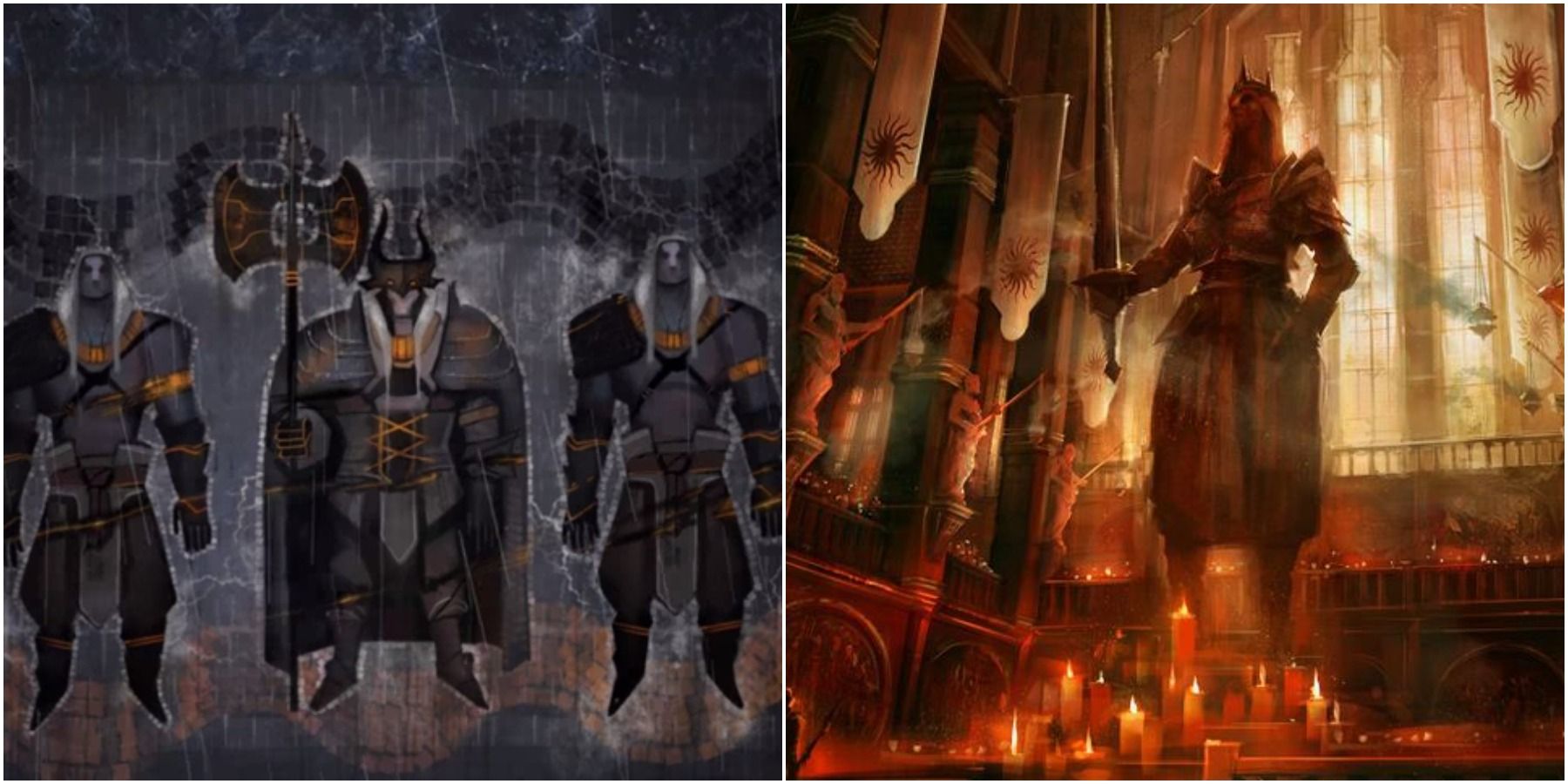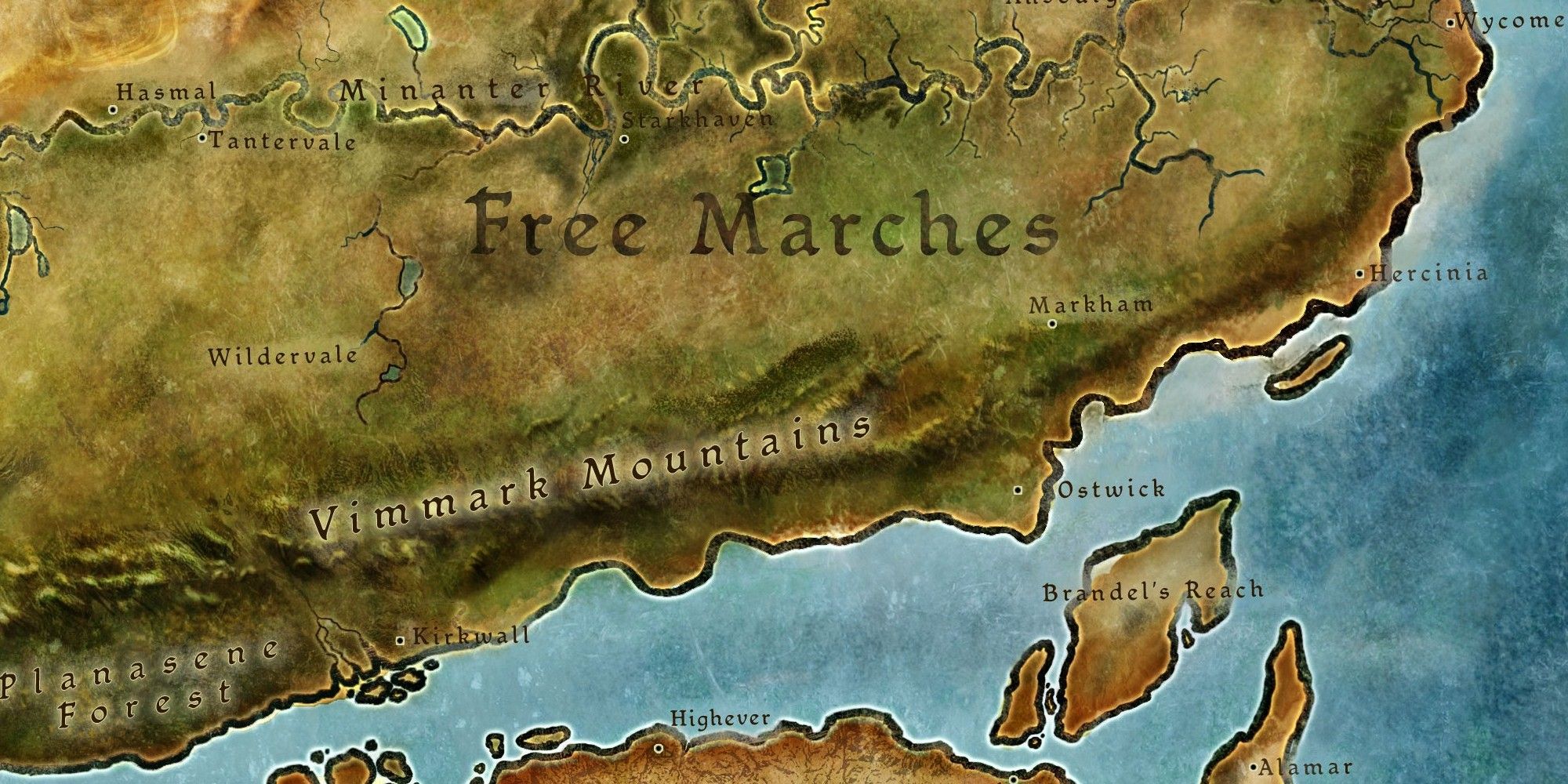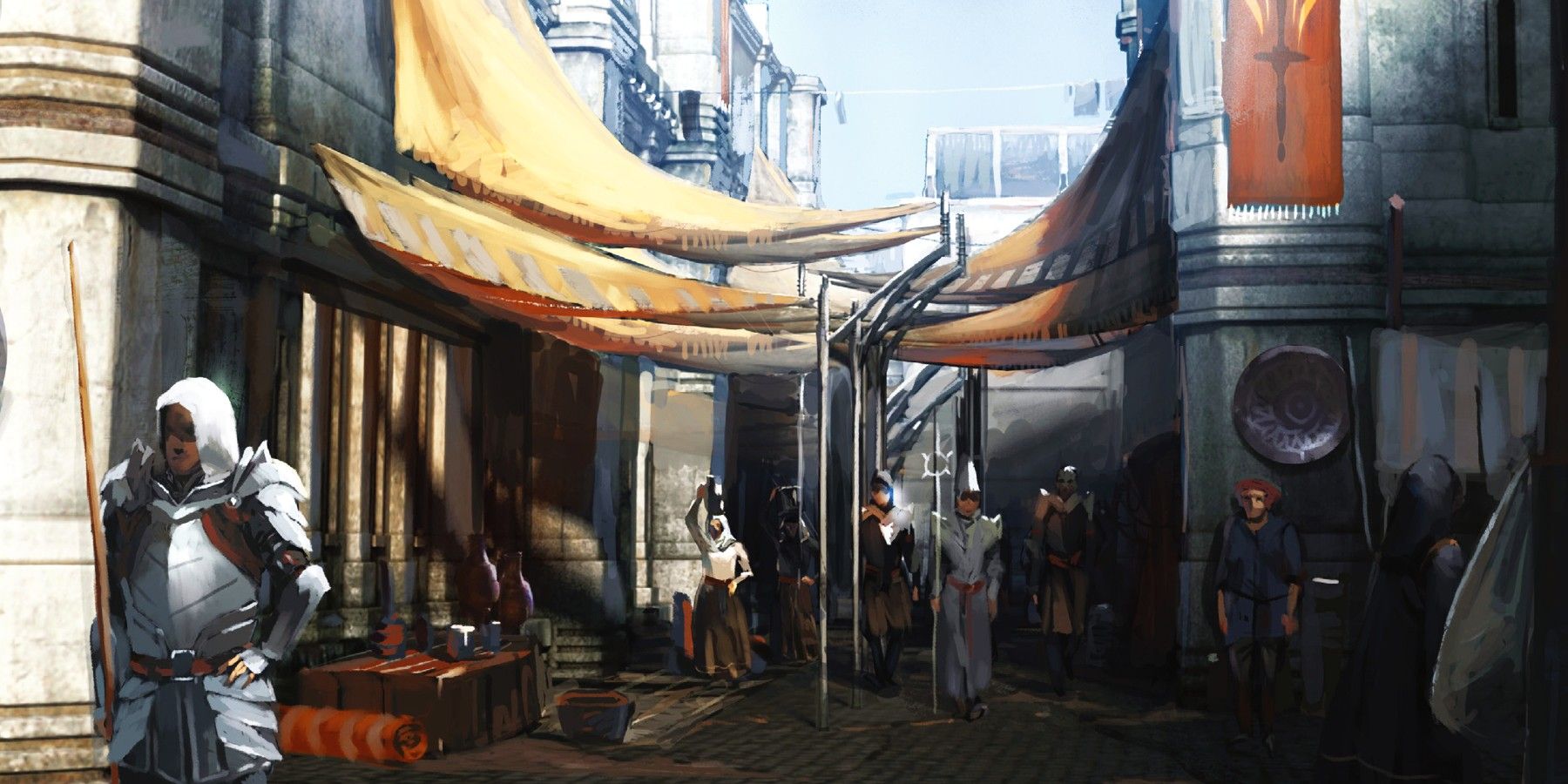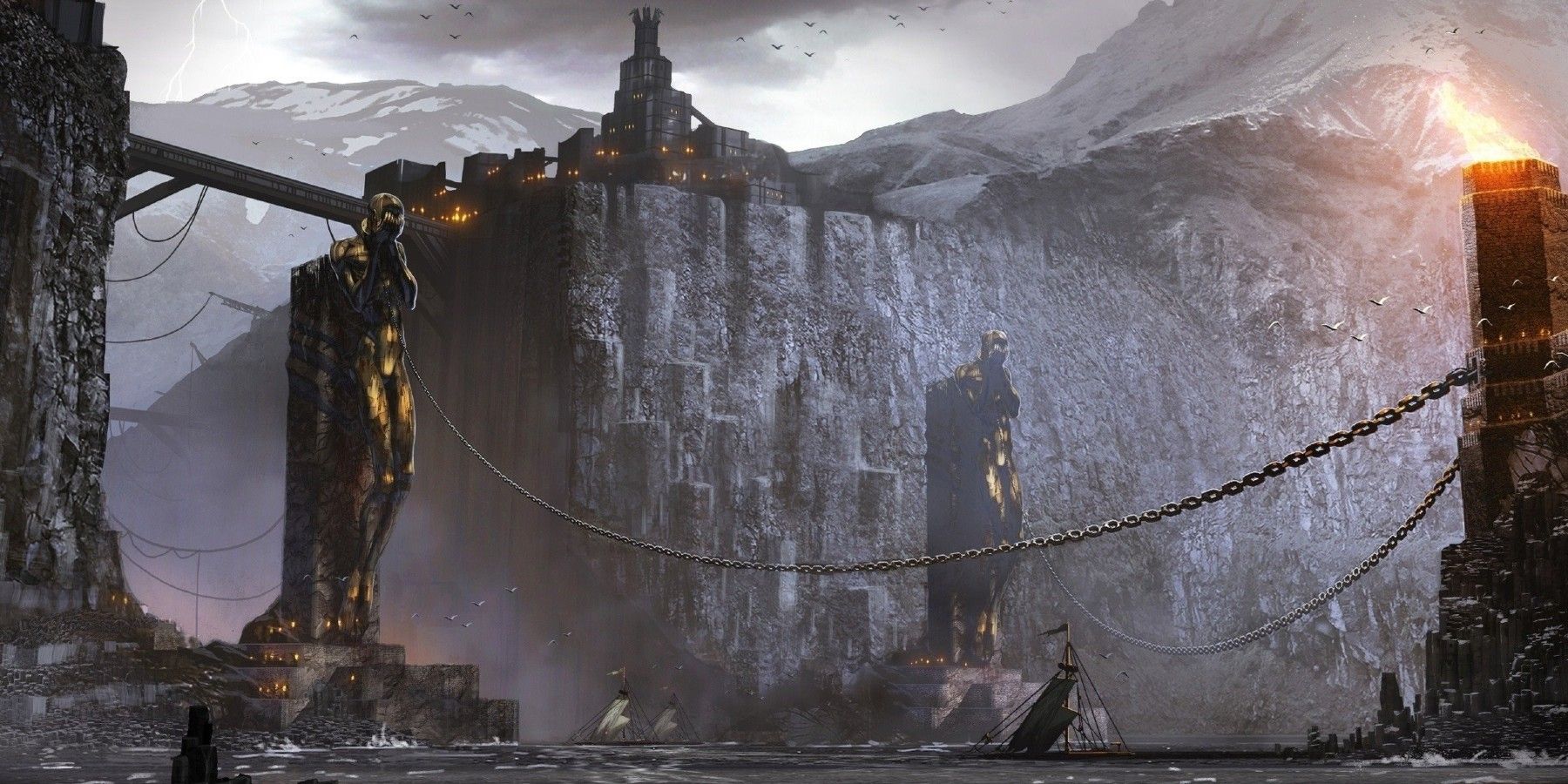Unlike other Dragon Age games, Dragon Age 2 took place entirely in one city (discounting its DLC). This was the games' greatest strength, as fans got to intimately know the city's culture and see it change throughout the years. However, it was also the games' greatest weakness, as many players expected a story along the lines of Dragon Age: Origins that took them on an epic journey.
Kirkwall is a hard city to forget, as it offers the sense of a doom the moment Hawke and their family arrive at the beginning of Dragon Age 2. It is called "The City of Chains," and has a long history of oppression for slaves and mages. The city has endured uprising, blights, and wars long before players enter through its chain-adorned gates, and this bloody, brutal history makes Kirkwall one of the most interesting locations in Thedas.
When Kirkwall Was Emerius
Kirkwall is a city-state of the Free Marches along with Starkhaven and Ostwick, but it originally was part of the Tevinter Imperium in the Ancient Age and had another name: Emerius. It was founded and named after its Magister founder, Emerius Krayvan, and Tevinter decided to put the center of slave trade at the edge of their nation. This location was seen as a way to better control slaves and prevent rebellions that could kill important government figures like the Archon.
Emerius housed more than one million slaves, and they were put to work in quarries and foundries to gather stone and steel for Minrathous' temples. In Brother Genitivi's writings, he described Emerius as "the greatest center of civilization outside Tevinter." At its height of competition between prospects, over half of the slaves in Emerius died due to abuse, blood magic sacrifices, and being overworked. Luckily, Emerius did not last.
While Andraste lead her Exalted March against the Tevinter Imperium, Emerius had a slave uprising. Magisters were sent to stop the uprising, but they vanished mysteriously before they reached the city. The city fell to the slave uprising after the First Blight hit Thedas, and the borders of what Tevinter ruled began to shrink. For a decade, Emerius became a place of anarchy. It was eventually renamed Kirkwall for the stone cliffs around the city as the last magisters were hung, Hightown was ransacked, and the city burned.
Wars In Kirkwall
With Kirkwall in anarchy after pushing out Tevinter, it was taken over by the Qun during the Storm Age. The Qun took over the city in the night using saarebas and converted Kirkwall's citizens with brutal force. For a short time, the city once again became a place of slave labor under different masters, but the rule of the qunari only lasted four years before Orlesian forces came and took the city from them. The leader of the Orlesians who took the city, Ser Michel Lafaille, became Kirkwall's first viscount.
As viscount, Lafaille created the Kirkwall City Guard and re-educated the population with the religion of the Chantry. The viscount answered to Orlesian royalty until the Blessed Age when its people had a rebellion that gained the city-state its independence. At the beginning of the Dragon Age, a vicious thug named Chivalry Threnhold became the city's viscount through a campaign of intimidation. His son, Perrin, succeeded him and charged major fees to any Orlesian ships that wanted passage through the Waking Sea. This invited the wrath of Divine Beatrix III, and she ordered the templars of Kirkwall to put pressure on the viscount to open up the Waking Sea.
Viscount Perrin, in retaliation, tried to exile the Templar Order from Kirkwall and murdered the Knight-Commander in a raid against the templars. Knight-Captain Meredith of the Kirkwall Templar Order took the best templars and stormed into the Viscounts Keep to arrest Perrin. Meredith's heroism made her the new Knight-Commander to be promoted by Grand Cleric Elthina. It was Meredith who appointed the new viscount, Marlowe Dumar, but it was clear that the true authority in the city was going to be Meredith and the templars.
A Thin Veil
Outside wars, Kirkwall has endured other kinds of violence. Due to the many secret areas in the city that the Tevinter Imperium built, crime has always been an issue. There are many hidden passages for wanted people to hide and commit villainous acts. Such secret places include the Black Emporium, which people can only find if given an invitation from Xenon.
When the city was Emerius, hordes of slaves were used in blood rituals and sacrifices. It was so common to sacrifice lives that the sewers have grooves for blood to flow. With all its magical and bloody history, patterns in back alleys and intersections still resemble magic glyphs that Tevinter may have used for huge amounts of human sacrifice.
The Band of Three, who were scholars dedicated to studying the history of Kirkwall, found that magisters sacrificed many slaves to thin the Veil so that magic can be all the stronger in the city. This may be connected to some troubles mages have in Kirkwall, as a much greater amount of them do not survive their Harrowing in the Circle compared to other places. The thin Veil in Kirkwall may also explain why so many apostates turn into abominations and fall to the influence of demons.
Dragon Age 4 is currently in development.




